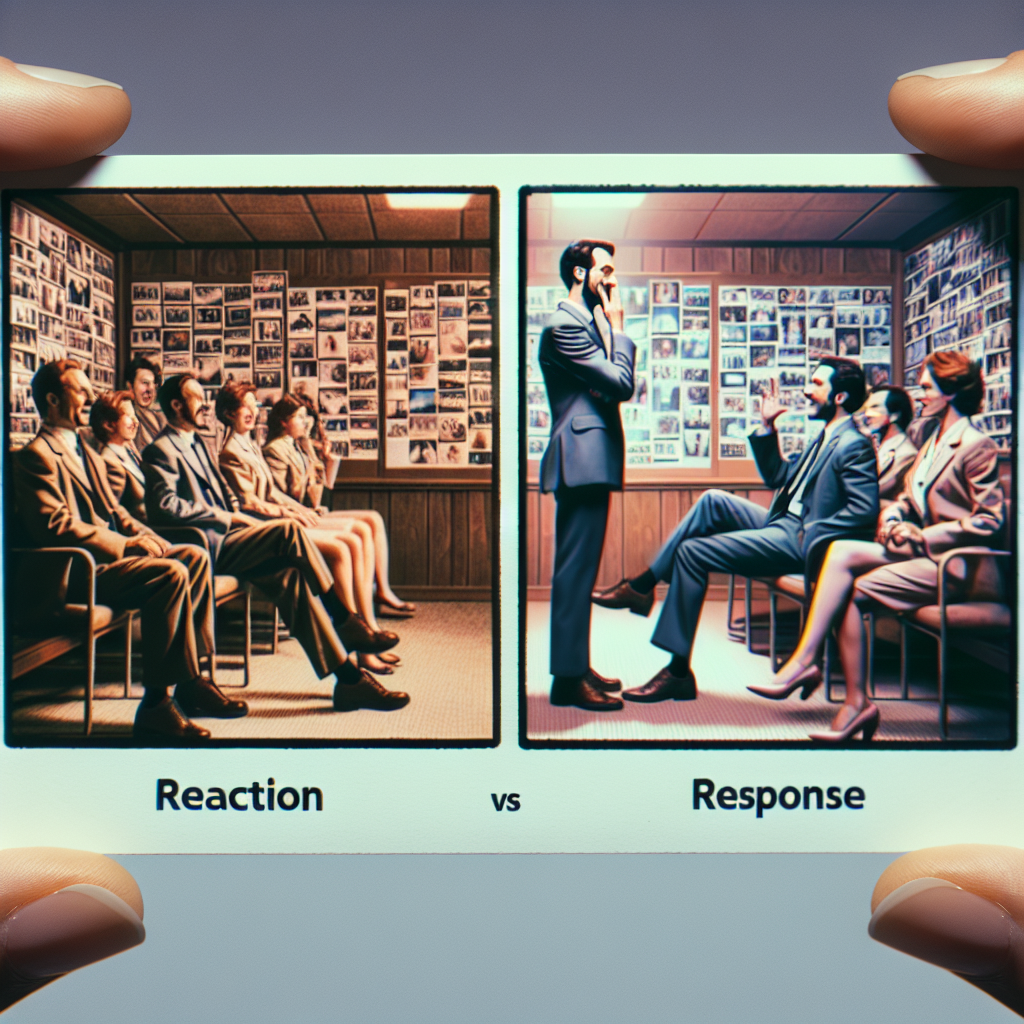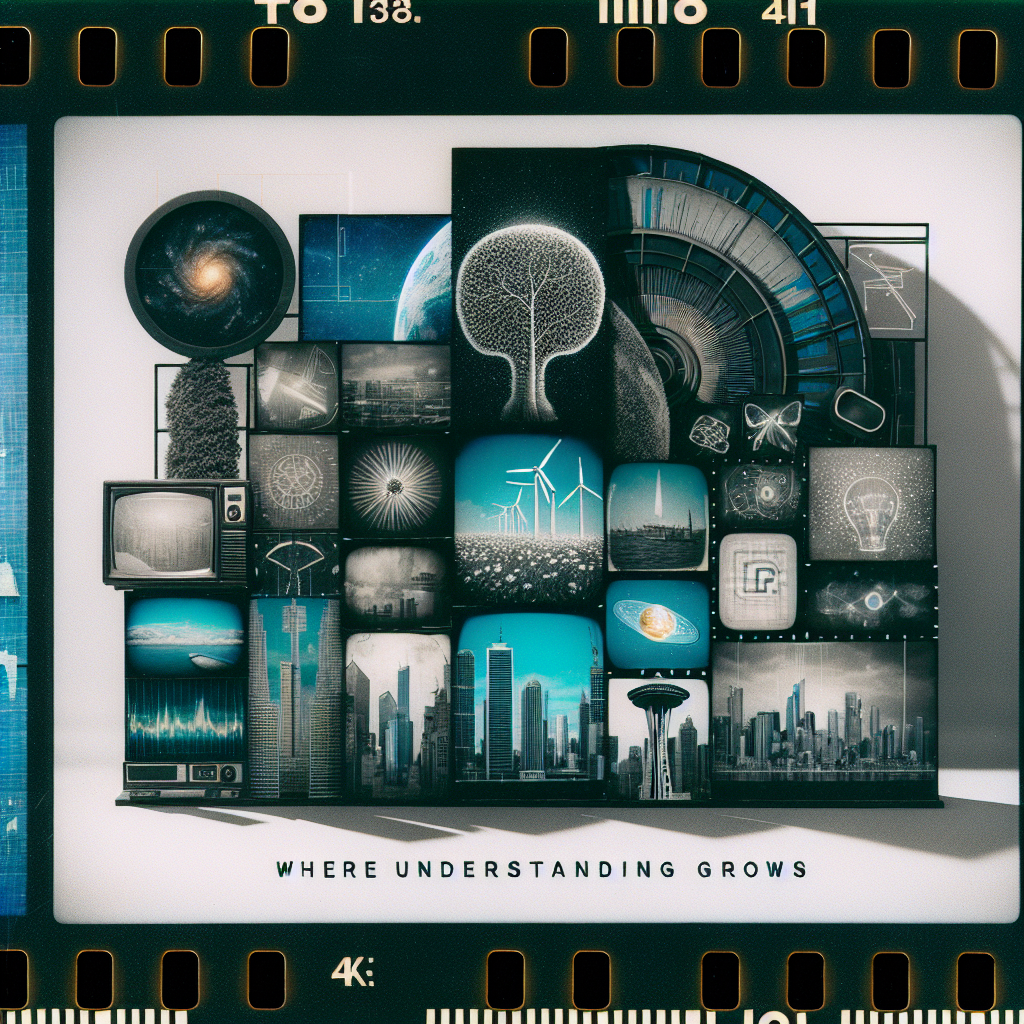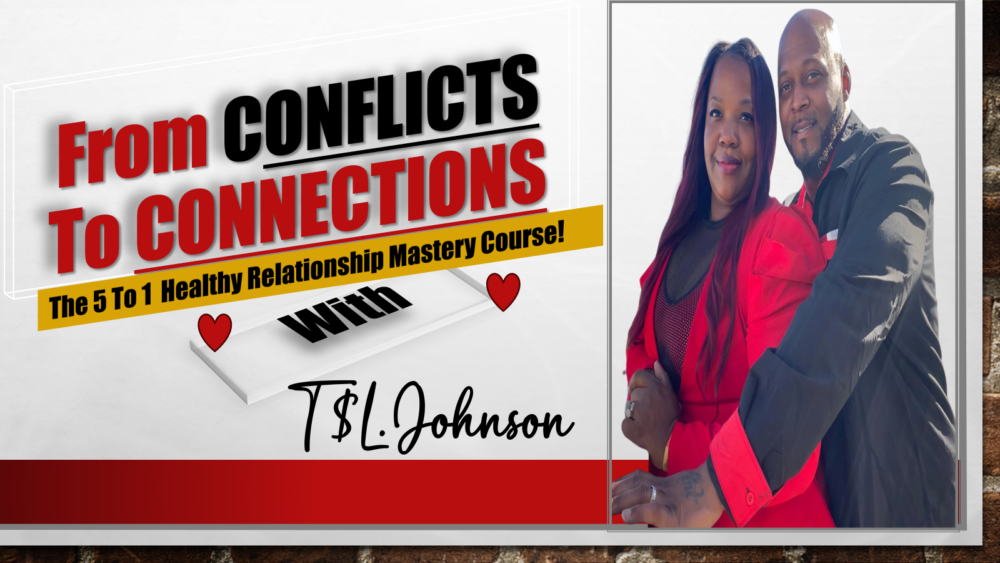1. Definitions: Reaction vs. Response
What is a Reaction?
Let’s kick things off with the definition of a reaction. When I think of a reaction, I imagine that knee-jerk moment when something catches me off guard—a loud noise, an unexpected comment, you name it. It’s that initial impulse to act without really thinking things through. It’s often driven by emotions or instincts, and, if I’m being honest, it can lead to situations I might later regret.
Reactions are visceral. They’re like pure autopilot—fire alarms ringing, you bolt out of there without even knowing why. There’s an important distinction between a simple reaction and a measured response. Understanding this difference can drastically change how we handle everyday situations.
In essence, reactions are quick and often irrational, bypassing the thoughtful processes that would serve us better. This is why recognizing our reactions is the first step towards personal growth.
What is a Response?
Now, let’s break down what I mean by a response. Unlike reactions, responses are a bit more considered and deliberate. It’s like taking a step back before firing off that email, really weighing your words, or thinking carefully through a tough conversation. A response reflects an understanding of the situation rather than just a gut reaction.
A response involves some cognitive processing. It’s about choosing how I want to react, rather than just letting the emotions take the wheel. This allows for greater control and clarity, helping me to navigate complex emotional landscapes efficiently.
Ultimately, responses are the healthier choice. They illuminate a pathway towards meaningful dialogue and better outcomes in conflict situations, and I’ve seen it make a huge difference in my own life.
2. The Emotional Component
Emotional Triggers
When we talk about reactions, we can’t ignore the fact that they’re often triggered by our emotions. I’ve had moments when my feelings were sky-high, and it felt like all logic went out the window. Whether it’s anger, frustration, or even excitement, our emotional state can heavily influence our initial responses to situations.
In my experience, a lot of misunderstandings arise from unfiltered reactions driven by emotional triggers. I’ve learned that when I feel those strong emotions bubbling up, it’s time to pause and breathe before responding. Recognizing what triggers me can really help me control how I move forward.
It’s essential to understand that acknowledging emotions doesn’t mean we’re ruled by them. By separating ourselves from the immediate surge of feeling, we can choose a response that aligns more closely with our personal values.
Building Emotional Intelligence
One of the most significant tools I’ve picked up over the years in this journey is emotional intelligence. It’s all about being aware of my own emotions and those around me. Having a high level of emotional intelligence allows me to step back, assess what I feel and why, and respond accordingly.
For instance, if I find myself feeling defensive in a conversation, recognizing that feeling allows me the opportunity to explore it without immediately firing back in defense. It’s not always easy, but the rewards are fabulous; improved relationships, enhanced communication—just plain happier vibes all around.
By honing our emotional intelligence, we not only improve our responses but also create space for others to feel understood and respected. Trust me, it’s a game-changer!
3. Mindfulness and Awareness
The Role of Mindfulness
Mindfulness has been a huge part of my personal development journey. It’s all about being present and aware of what’s happening both inside and outside of me. When I practice mindfulness, I can observe my reactions without judgment—a sort of calm witness to my own experience.
This sense of awareness allows me to identify when I’m about to react impulsively. Instead of jumping in headfirst, being mindful helps me pause, take a beat, and consider a more balanced response. Making this choice can lead to more constructive outcomes.
Even a few minutes of mindfulness before engaging in discussions can dramatically shift my perspective. It fosters an environment where thoughtful responses flourish rather than quick reactions.
Techniques to Cultivate Awareness
There are tons of ways to cultivate mindfulness. Personally, practices like deep breathing, meditation, and engaging in reflective journaling have worked wonders for me. Whenever I feel overwhelmed or on edge, taking time to breathe deeply can ground me, allowing clarity to settle in.
When I journal, it gives me a chance to sort through my emotions. Writing down my thoughts helps me identify patterns in how I react and what leads me to those reactions, making it easier to adjust when similar situations arise again.
Meditation can help clear the clutter in my head. Even just a few minutes a day can elevate my ability to observe myself outside of the heat of the moment, so when I need to respond, I do so thoughtfully.
4. The Importance of Reflection
Reflecting on Past Experiences
Reflection is a powerful tool I often overlook, but it’s key to understanding my reactions and responses. When I take the time to reflect on past situations, I can analyze how I reacted and what consequences followed.
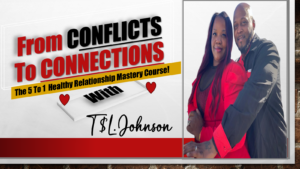
For example, after a heated argument, reflecting on what I said and how it impacted the situation helps me identify whether my reaction served me well or if it just blew things up even more. This insight sets me up for better responses in the future.
By regularly engaging in this reflective practice, I can develop a deeper self-awareness that reshapes how I approach new challenges. This cycle of reflection and growth is fundamental to becoming my best self.
Journaling as a Reflection Tool
Writing down my thoughts has been instrumental in my journey of reflection. It’s like I’m holding a mirror up to my experiences, and sometimes, I can be surprised by what I learn about myself. Journaling allows me to put my feelings and reactions into words, making them tangible and easier to assess.
I often revisit old entries, and it’s eye-opening to see how I’ve transformed over time. This process gives me a clearer picture of how far I’ve come and where I might need to make some adjustments.
Moreover, journaling fosters accountability. When I clearly lay out the consequences of my reactions and see them in black and white, it really drives home the importance of deliberately choosing responses in future situations.
5. Practical Strategies for Better Responses
Taking a Timeout
One of the simplest yet most effective strategies I’ve implemented is taking a timeout. When I feel that impulse to react, I’ve learned to step away. I know it’s not always easy to just push the pause button, but a little space does wonders.
During this timeout, I’ve often found that I can gather my thoughts and regain control of my emotions. Whether stepping out for a quick walk or simply taking a few deep breaths right at my desk, this little break allows my rational mind to engage before I respond.
It begs the question: How often do we just need to hit the brakes? The answer, in my experience, is quite a lot! A timeout can change the course of a conversation, ensuring that it remains respectful and productive.
Practicing Empathy
Another strategy that has served me well is practicing empathy. When I’m in a difficult situation, making an effort to understand where the other person is coming from changes my entire outlook. Empathy softens my initial reactions and drives me toward more compassionate responses.
By putting myself in someone else’s shoes, I gain valuable insight into their feelings and motivations. This understanding allows me to craft responses that are not just about my needs but also honor the emotional state of the other person.
Plus, empathy leads to stronger connections and communication. People tend to respond better when they feel heard and understood, making it a win-win in any interaction.
Seeking Feedback
Lastly, I can’t stress enough how important it is to seek feedback from trusted friends or mentors. They can offer an outside perspective that I might not see in the heat of the moment. Sometimes, all it takes is a gentle nudge from someone who knows me well to steer my reactions in a healthier direction.
Having someone to talk to about my reactions helps me think more critically about how to respond better next time. Getting feedback is all about growth, and it’s true that it takes a village to raise our self-awareness!
So, don’t shy away from reaching out. The right support can turn any challenging situation into a learning opportunity, reinforcing the importance of thoughtful responses over impulsive reactions.
Frequently Asked Questions
1. What’s the main difference between a reaction and a response?
A reaction is an immediate and instinctive response to a stimulus, often driven by emotions. In contrast, a response is a more deliberate and thoughtful action that reflects consideration and awareness.
2. How can I become more aware of my emotional triggers?
Start by keeping a journal to document instances where you feel strong emotions. Over time, patterns will emerge, helping you recognize what triggers your reactions.
3. Why is mindfulness important in this context?
Mindfulness helps you to remain present and aware of your thoughts and feelings. It gives you the space needed to pause and choose a response instead of automatically reacting.
4. How can I practice empathy effectively?
To practice empathy, actively listen to others without interrupting or judging. Try to imagine how they feel and express your understanding of their emotions both verbally and through your body language.
5. Is it okay to take a timeout during a conflict?
Absolutely! Taking a timeout is a healthy strategy to regain composure and think more clearly before responding, which often leads to a more productive outcome.
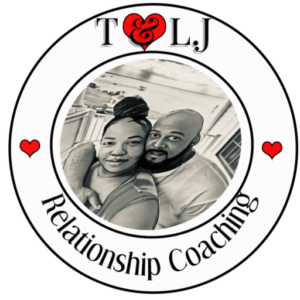
Schedule Your First 20-Minute Coaching
Call With Us Today to see if we fit . You pick the price!
Click Here

